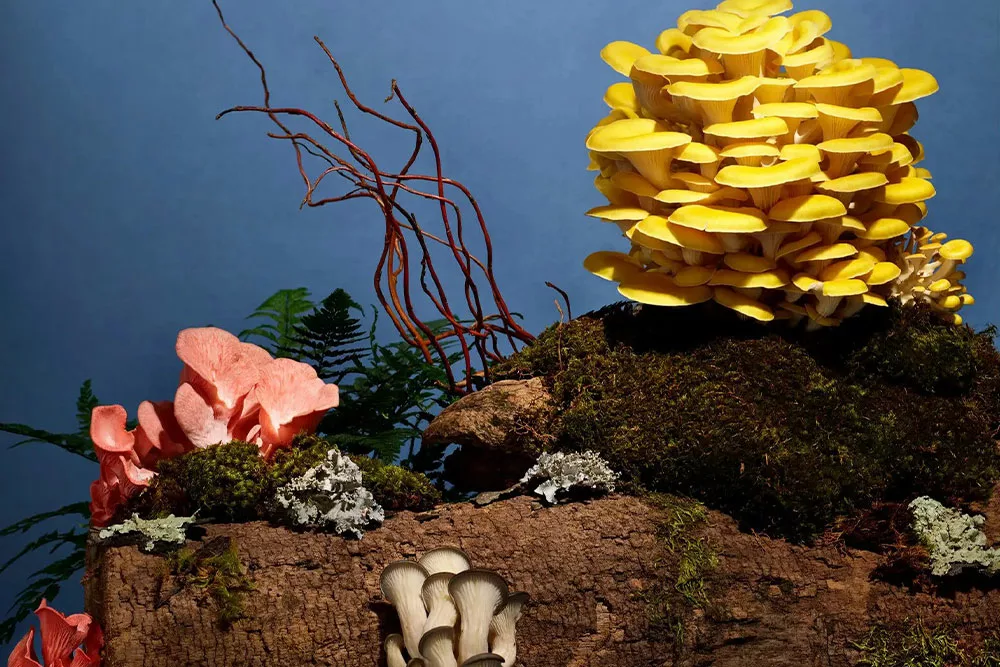Even before the onset of the pandemic, which has increased the demand for all manner of so-called organic immunity elixirs, wellness-minded Americans were warming to mushrooms. To be clear, mushrooms don’t cure Covid-19, but they are thought to provide a host of other benefits, from serving as an aphrodisiac to bolstering one’s defenses to toxins. As Ligaya Mishan explains in her essay for T’s Fall Men’s issue, Eastern cultures have long been enthusiastic about edible fungi, both in culinary and health contexts — mushrooms are rich in umami, the Japanese “fifth taste” that denotes savoriness, and woody species such as reishi are often prescribed in traditional Chinese medicine — while the West has been more ambivalent. Today, though, American cooks and diners delight in foraged morels and matsutakes, while others mix mushroom-based powders into shakes and teas. In an article published in 2014 — over 80 years after the British scientist Alexander Fleming discovered penicillin, the powerful group of antibiotics derived from the fungus Penicillium — the mycologist Paul Stamets, best known for the TED Talk “6 Ways Mushrooms Can Save the World,” described mushrooms as “nature’s miniature pharmaceutical factories.”
“Fungi have the ability to soak up and escort waste from our cells, and have a digestive system almost identical to that of humans,” says Liz Smithers, who studied Ayurvedic medicine and herbal sciences before launching the sustainable Kauai-based nutrition brand Laka Living with her sister, Kate, in 2015. The line includes a chocolate-flavored hemp protein ($34) containing mushrooms such as lion’s mane (shown in studies to reduce anxiety and prevent cognitive decline), and Super Shroom Dip ($30), a macadamia nut butter laced with a five-mushroom blend. “At this point, only 7 percent of the world’s fungi have been discovered, and Hawaii, the most isolated archipelago in the world, has some of the most understudied species,” says Benjamin Lillibridge, the Kailua-Kona-based founder of the wellness company Mālama Mushrooms, and of the Hawaii Fungi Project, a nonprofit dedicated to the discovery and responsible use of the islands’ native species. Of course, there are also plenty of noteworthy mushroom nutraceutical ventures Stateside — see Shizu Okusa’s brand Apothékary, which has teams in San Francisco and Washington, D.C. — but Lillibridge’s wider point, perhaps, is that with so much still to discover about fungi, who knows what heretofore unknown powers they may possess? Here, a list of just some of the beneficial properties mushrooms are thought to have, and where to find the best blends.
Immune Defense and Support
“I grew up in a super-traditional immigrant Japanese family where my parents wouldn’t give me Tylenol or Advil,” says Okusa, who was instead given “dark, oozy drinks” of mushrooms and dried herbs that had been brewed for days in stone pots. Last year, she launched Apothékary, offering her Immunity Set ($45), a trio of different mushroom powders that draw on the blends of her youth: One pairs reishi with ashwagandha root to reduce inflammation, while another is made purely of ground reishi and meant to be used as a concentrated booster in teas and smoothies by “advanced herb users,” she says. “Reishi by itself can be a bit more difficult, taste and potency wise.” Meanwhile, Steven Gundry, a Palm Springs-based cardiologist, has grouped what he calls “the big three” — reishi, chaga and coriolus, the latter two best known for their high antioxidant content and immune support benefits — in his Gundry MD M Vitality immune support tonic ($66), drops of which can be applied directly to your tongue. If you’d prefer something sweeter, consider Forest Juice ($31), a reishi- and chaga-infused maple syrup from Rainbo, a line of mushroom-based supplements and food products founded by the holistic chef and nutritionist Tonya Papanikolov.



